Philip K. Dick’s Electric Dreams hit Amazon’s Prime Video service last weekend, and the standalone episodes can be enjoyed in any order. Which episodes of Amazon’s new anthology are worth watching, and which can you skip? We’re breaking it down, while keeping it as spoiler-free as possible.
Each installment of the sci-fi anthology features its own unique, story, setting and cast, including famous faces like Steve Buscemi, Anna Paquin, Terrence Howard, Greg Kinnear, Bryan Cranston and Liam Cunningham. As adaptations of Dick’s short stories, some episodes take place in imagined worlds hundreds of years in the future, while others will feel much closer to home.
A point of clarification: The original U.K. run of the series (via Wikipedia) orders the episodes differently from Amazon Prime Video. For example, “The Commuter” was the third installment across the pond, and the ninth in Amazon’s lineup. We’ll hew to Amazon’s order here.
Overall impressions
In its best moments, Electric Dreams reminds us of the strengths of short-form science fiction and anthologies, as opposed to film or serial television. There simply isn’t time to over-explain or mythologize aspects of the world. It’s a welcome reminder in this age of “cinematic universes” and bloated multimedia franchises that an hour’s worth of solid storytelling can have more of an impact than encyclopedic volumes of lore.
That said, some of the episodes just don’t work. Often -- though not always -- they’re the ones that attempt to comment on contemporary politics and social values. Like much of Dick’s work, Electric Dreams shines brightest when wrestling with broader philosophical questions about the nature of consciousness and what makes humanity unique in our universe.
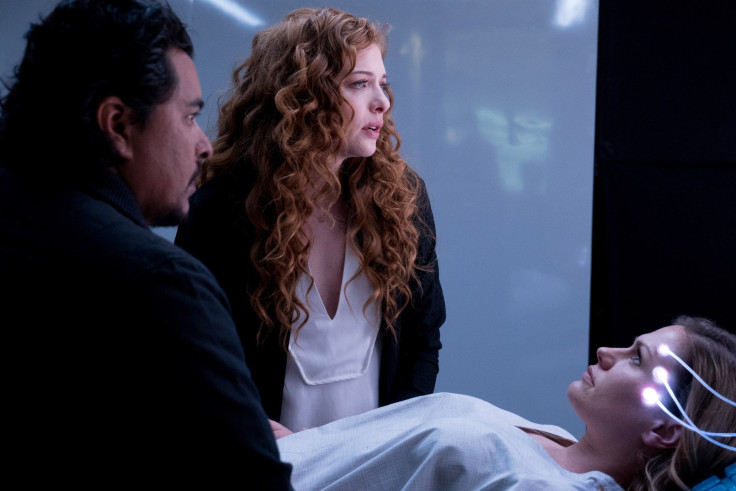
Episode 1: “Real Life” - Must-watch
Anna Paquin plays Sarah, a traumatized cop in future Chicago who ventures into a virtual world to escape the stresses of the job, only to find herself inside the mind of the game’s creator, George, portrayed by Terrence Howard. But is Sarah dreaming she’s George or is George dreaming he’s Sarah?
I’ve never been to present-day Chicago, but I damn sure want to visit Electric Dreams’ vision of the Second City. But don’t be distracted by all the neon; this is a contemplative look at loss, trauma, the commonality of human experience, and the ways in which people subconsciously contrive to punish themselves. It’s tricky to explain without spoiling the whole thing, but suffice to say it’s well worth an hour of any sci-fi fan’s time.
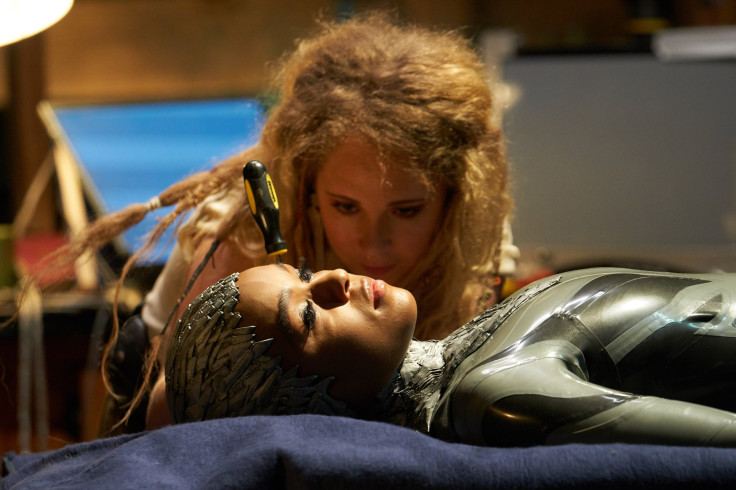
Episode 2: “Autofac” - Watch
With human society decimated by war 20 years prior, a massive manufacturing plant continues to produce goods, giving off pollution that threatens natural resources precious to a small host of survivors nearby. They resolve to destroy the factory, with the help of a customer service robotic unit named Alice.
I don’t care much for hippies or hipsters, so the styling of humanity’s last remnants (lots of earthy knits, nose rings, white girl locs, Scooby-Doo goatees and John Lennon specs) irked me pretty much immediately. There’s also an interminable shower scene early on that I really could have done without.
So why the hell am I telling you to watch this? Well, there’s a plot twist toward the end that’s unexpected and wonderful, and makes the annoyances of the first half completely worth it. I won’t spoil it here, and don’t spoil it for yourself by googling it. Just watch it.

Episode 3: “Human Is” - Must-watch
Set in a dark Federation-esque vision of humanity’s future on a dying Earth, Bryan Cranston plays Silas Herrick, a military man who treats his wife Vera (Essie Davis) like absolute crap. When Silas returns home from his latest mission a changed man, Vera struggles to make sense of things as General Olin (Liam Cunningham) attempts to discover what really happened during the mission.
Gripping straight from the start in terms of setting, scenario and characters, this episode is the best of the bunch, in no small part due to the performances of the lead trio. Vera’s effort to maintain composure in the face of consistent stone-cold emotional abuse (and her later reluctance to accept his kindness) is pitch-perfect, and Cranston handles the dramatic alteration of Silas’ personality with remarkable agility.
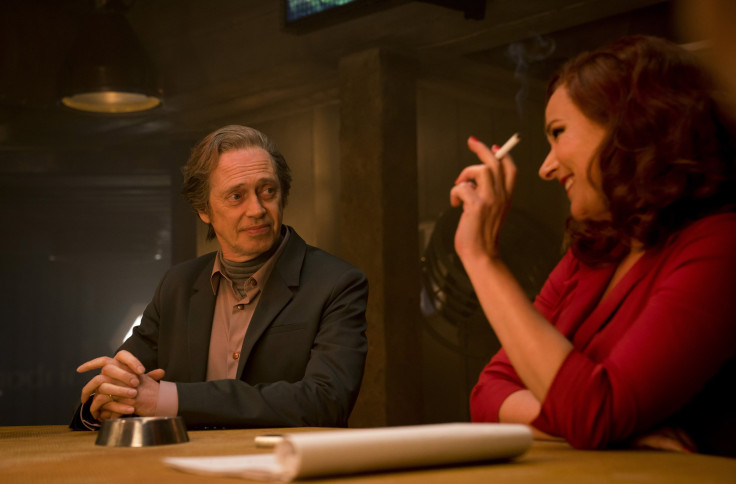
Episode 4: “Crazy Diamond” - Toss-up
Steve Buscemi plays Ed, a restless employee of a facility that produces synthetic humanoids known as chimeras. As in the preceeding two episodes, Ed too inhabits a dying world, where the coastlines erode at a precipitous rate and rations of food go rotten in just a few short hours. Ed’s relentlessly cheerful wife Sally brushes aside his desire to leave it all behind, though the arrival of a mysterious stranger makes him consider the option more seriously.
Buscemi makes Ed’s quiet desperation palpable and relatable, though this episode drags a bit. We know the motivations of the principal characters quite early on, and though learning more about the world Ed and Sally inhabit yields some interesting moments, it takes a bit too long for the action to unfold. While the story closes in a rather surprising fashion, on reflection the ending doesn’t really make a whole lot of sense.
Bonus: Keep an eye out for Joanna Scanlan, utterly hilarious as the oblivious Communications Director / “human blockage” Terri Coverley on The Thick Of It, in a rather strange little role as a gatekeeper at the chimera farm.

Episode 5: “The Hood Maker” - Watch
Robb Stark… er, Richard Madden plays Agent Ross, a detective caught in the midst of an escalating conflict between “normals,” anarchists, and telepathic mutants known as “Teeps.” He’s partnered with a Teep known as Honor (Holliday Granger) to help him discover why the anarchists have begun wearing hoods to block the reading of their thoughts.
The sci-fi / noir look of this episode left me cold at first, but I enjoyed this episode more than I expected to at first. Honor’s telepathy is articulated on-screen as a sort of collage of overlapping voices and memories, which not only looks quite cool, but keeps the pacing tight for exposition that would otherwise feel like an infodump. Ross and Honor cautiously suss each other out while investigating, and their partnership and banter is the best part of the episode. On the downside, the distinctions between the political motivations of anarchists and the Teeps are difficult to parse (other than the whole telepathy thing). Nevertheless, “The Hood Maker” is a fun watch, but more on the level of character than story.
Also, Madden lets his Glaswegian accent out to play and I am HERE FOR IT. Please interrogate me any time, good sir.
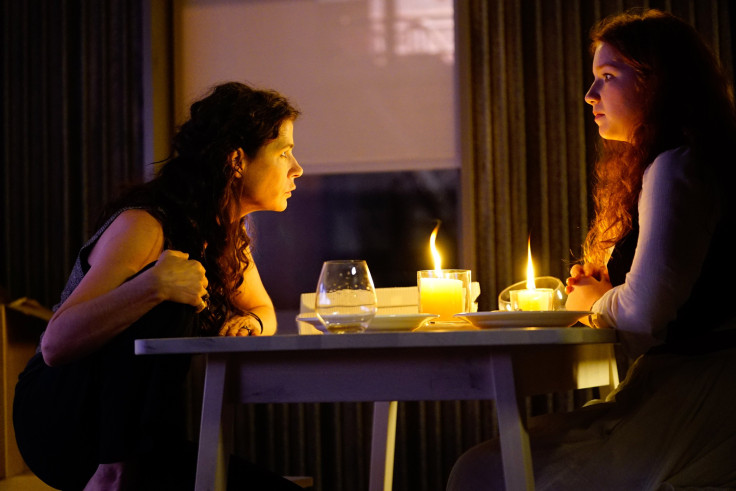
Episode 6: “Safe and Sound” -- Skip
15-year-old Foster (Annalise Basso) and her lefty activist mother (Maura Tierney) move from the decimated western states to an Eastern metropolis. Foster struggles to fit in her new school, where propaganda drives students to assume that people from the west are would-be terrorists. Alienated from her classmates, she becomes increasingly dependent on her new “electronic assistant.”
"Safe and Sound” is a preachy, technophobic chore to watch, even if you happen to feel sympathetic (as I do) to its central arguments concerning “safety” and “big tech.” While a teenager wanting to fit in is hardly anything new, the lengths to which she goes are exasperating and implausible. What’s more, the teenagers’ dialogue throughout smacks of being written by someone who has not been a teen anytime recently. And, lest I forget, there’s an unwelcome tinge of red-state vs. blue-state to the whole affair that’s not something I want in my escapist television right now. Vulture has a really interesting take in this vein, though I’m not willing to attribute that degree of sophistication to “Safe and Sound.” Either way, save yourself the trouble and don’t watch it.
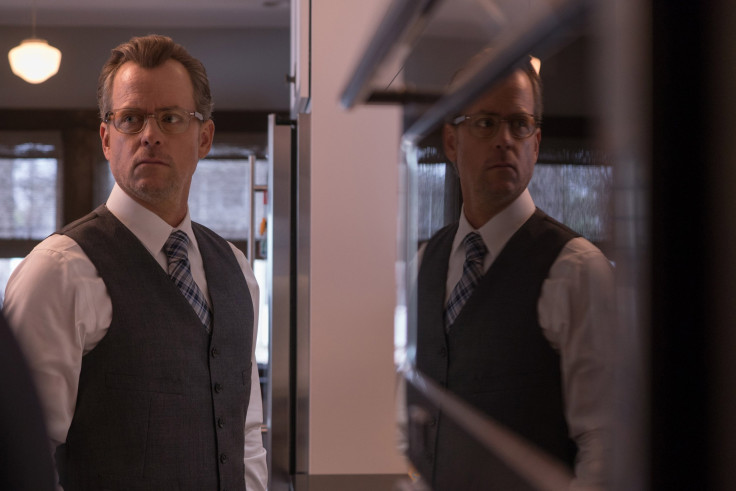
Episode 7: “The Father Thing” - Toss-Up
Amidst the increasingly strained relationship between his parents, an adolescent boy in suburban Illinois finds himself in the midst of an extraterrestrial threat. Greg Kinnear plays the soft-hearted dad trying to keep it all together.
While my first impression of this episode was “oh no, baseball,” given the opening father-son chat about America’s pastime, things soon moved into a more intriguing Invasion of the Body Snatchers direction. However, despite a promising setup, the resolution of the story felt hasty and unearned in a way that detracted from my enjoyment of the middle sections of the episode. I don’t know that I would actually see a full-length movie of this, but the lickety-split resolution left me feeling like the story needed more room to breathe. Without giving away too much, let’s just say our tween hero is remarkably blasé about some major, code-red level shit that goes down.
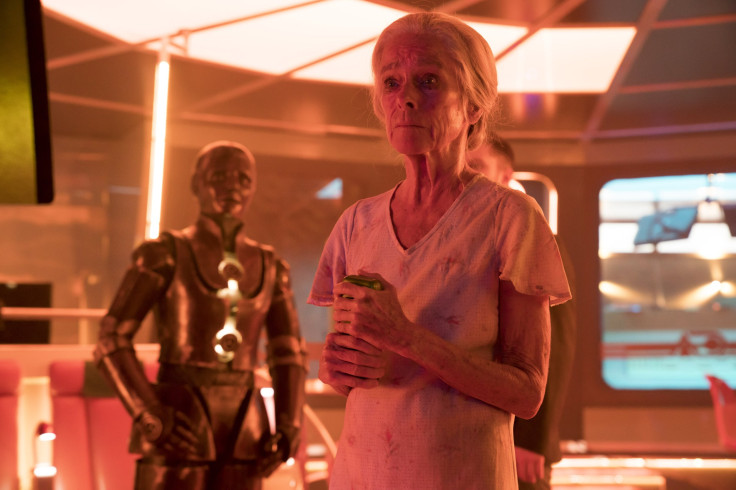
Episode 8: “Impossible Planet” - Skip
In a distant future (cue MST3K theme), an elderly woman, Miss Gordon, approaches a space tourism company for an off-the-books job. During the trip, she forms a strong attachment to one of the workers, Norman.
While the promise of weird futures brought me in the door for Electric Dreams, this story just didn’t hold my attention. There’s A LOT of sitting and talking (admittedly in cool-looking surroundings) between characters who aren’t particularly relatable or likeable. Miss Gordon’s reflective, backward-looking emotional journey could have been more engaging if twinned with something other than Norman’s chickenshit angst about how to ambush-dump his fianceé. (Pro-tip: maybe don’t do it via Skype.) While this episode isn’t consistently grating like “Safe and Sound,” it’s not terribly interesting either.
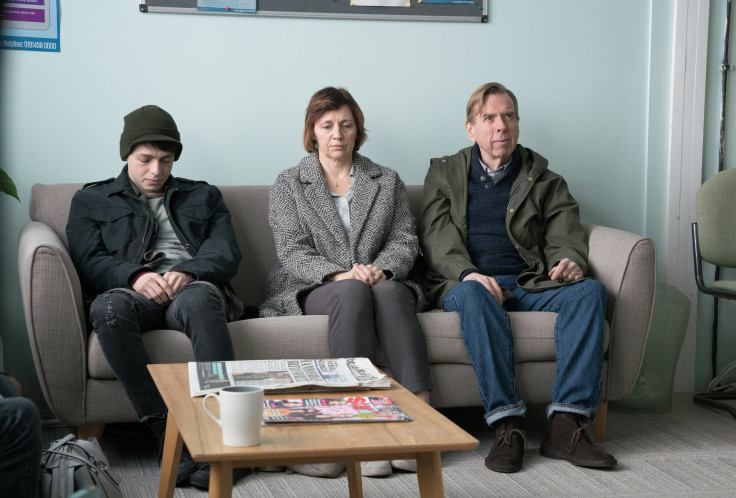
Episode 9: “The Commuter” - Must-Watch
Ed Jacobson (Timothy Spall) works in Woking station, smiling politely through the scowls of crotchety travelers. His unsettled homelife takes an abrupt turn after he follows a strange customer to a mysterious destination.
Full disclosure: having lived in England for a number of years, I’m a sucker for the poky drear of Blighty’s railway stations, so this one earns some immediate personal bias points purely on the basis of its setting.
That said, it’s still a standout episode, one that doesn’t feel shortchanged by the hour-long format, like “The Father Thing.” Spall’s performance is the best thing about “The Commuter,” conveying the conflicting desires to simultaneously escape and preserve his humdrum, imperfect life with nuance and palpable emotion. It’s a perfectly satisfying slice of short-form sci-fi that allows character to stand on equal footing with concept.
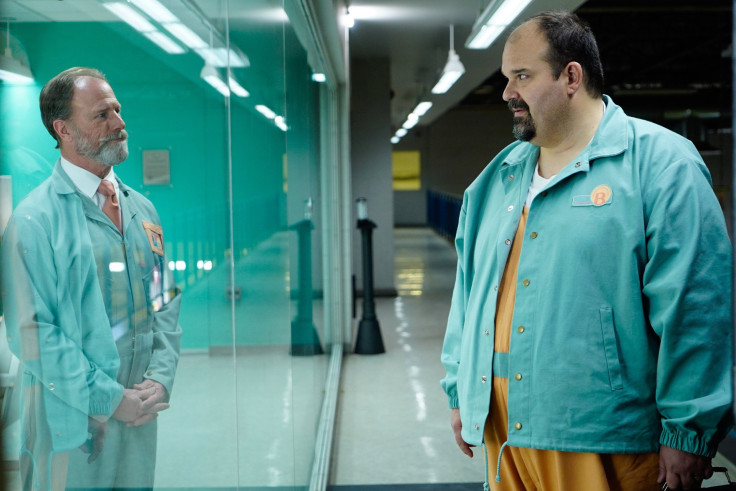
Episode 10: “Kill All Others” - Must-watch
A factory worker named Philbert (Mel Rodriguez) sees the ruler of the one-party meganation of Mexuscan (Vera Farmiga, in full Hunger Games Capitol drag) urging citizens to “kill all others” during a televised campaign speech, but no one believes him. His outrage at how he sees the world changing around him begins to attract unwelcome attention.
I keep internally referring to this episode as “Kill All Humans,” and hoped it might be a one-off Futurama X PKD collab. Sadly it isn't, but it’s well worth your time regardless. Where some of Electric Dreams' other attempts to wade into contemporary political issues come off as ham-fisted, this extrapolation of the role of cable news in normalizing of extremism makes for a suspenseful and unnerving hour. Rodriguez is excellent as a reluctant dissident, horrified as the world around him takes the express train to crazy town. Think of it as They Live with a dollop of Sarah Huckabee Sanders.
Which episodes of Electric Dreams did you enjoy most? Did you have a different take? Let us know your thoughts in the comments!

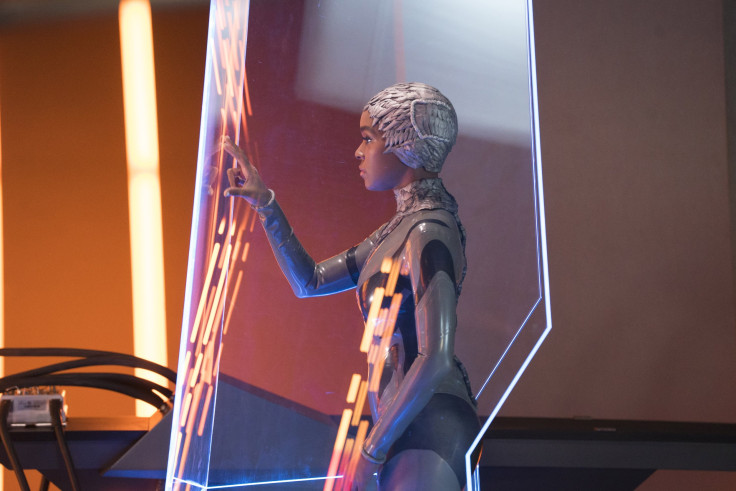





![Best Gaming Mouse For Gamers With Smaller Hands [2025]](https://d.player.one/en/full/227430/best-gaming-mouse-gamers-smaller-hands-2025.png?w=380&h=275&f=fdcf47c1c5fc58d1e41d3be505c12568)










